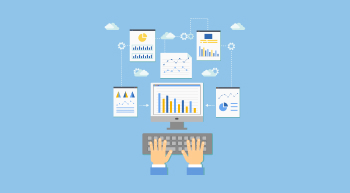 Accounting, often perceived as a traditional and rigorous field, is undergoing a transformative period at the hands of Artificial Intelligence . The integration of AI technology has revolutionised the industry, leading to significant changes in how financial data is processed, analysed , and interpreted. As we navigate through this era of rapid technological advancement, it becomes increasingly evident that AI is poised to redefine the future landscape of accounting. In this article, we will explore the myriad ways in which AI is reshaping the accounting profession and discuss the implications for accountants and businesses alike.
Accounting, often perceived as a traditional and rigorous field, is undergoing a transformative period at the hands of Artificial Intelligence . The integration of AI technology has revolutionised the industry, leading to significant changes in how financial data is processed, analysed , and interpreted. As we navigate through this era of rapid technological advancement, it becomes increasingly evident that AI is poised to redefine the future landscape of accounting. In this article, we will explore the myriad ways in which AI is reshaping the accounting profession and discuss the implications for accountants and businesses alike.
How AI Is Revolutionizing the Industry?
Improved Efficiency: With AI tools handling routine tasks, Accounting professionals can become more efficient in producing financial reports. This improved efficiency not only saves time but also enables businesses to make faster decisions based on accurate and up-to-date information.
By implementing machine learning technology in auditing, accounting firms can streamline their processes, increase efficiency, and improve overall accuracy. This revolution in auditing methods marks a significant shift towards a more data-driven approach to financial analysis. As AI continues to advance, auditors will have access to powerful tools that enhance decision-making and provide deeper insights into businesses’ financial health.

AI-powered expense management tools are changing the way businesses handle their financial processes. These tools automate repetitive tasks like data entry, receipt scanning, and categorization, saving valuable time for accounting professionals. By using machine learning algorithms, these tools can detect patterns in spending behaviour, flag suspicious transactions, and provide real-time insights into expenses.
With the help of AI tools, accuracy in expense reporting is significantly improved as manual errors are reduced. The software can cross-reference data from multiple sources to ensure all expenses are accounted for correctly. Additionally, AI can analyse historical data to forecast future expenses accurately, allowing businesses to make informed decisions based on reliable information.
In summary,
In summary, the integration of AI into accounting software holds tremendous potential for revolutionising the industry by offering increased efficiency, enhanced data analysis capabilities, improved fraud detection mechanisms, and streamlined reporting processes. It is clear that embracing these technologies will not only benefit individual accountants but also drive overall organisational success in a rapidly evolving business landscape.
Accountants must adapt to this changing landscape by enhancing their technical skills and embracing new technologies. Automation of repetitive tasks allows accountants to focus on higher-level strategic initiatives, providing better insights for clients and improving decision-making processes.
One challenge is the fear of job loss due to automation. However, by upskilling and reskilling, accountants can transition into more value-added roles that require critical thinking and problem-solving abilities. Trust in AI systems may also be a hurdle, but establishing transparency and accountability measures can help build confidence in these technologies.
Navigating the evolving role of accountants with AI involves staying updated on emerging tools and trends. Continuous learning and adaptability are key components for success in this dynamic environment. Collaboration between humans and machines will redefine traditional accounting practices, leading to greater efficiency, accuracy, and innovation within the industry.

Revolutionising Finance : The Power of Nivi Ai

Virtual Computer Reports